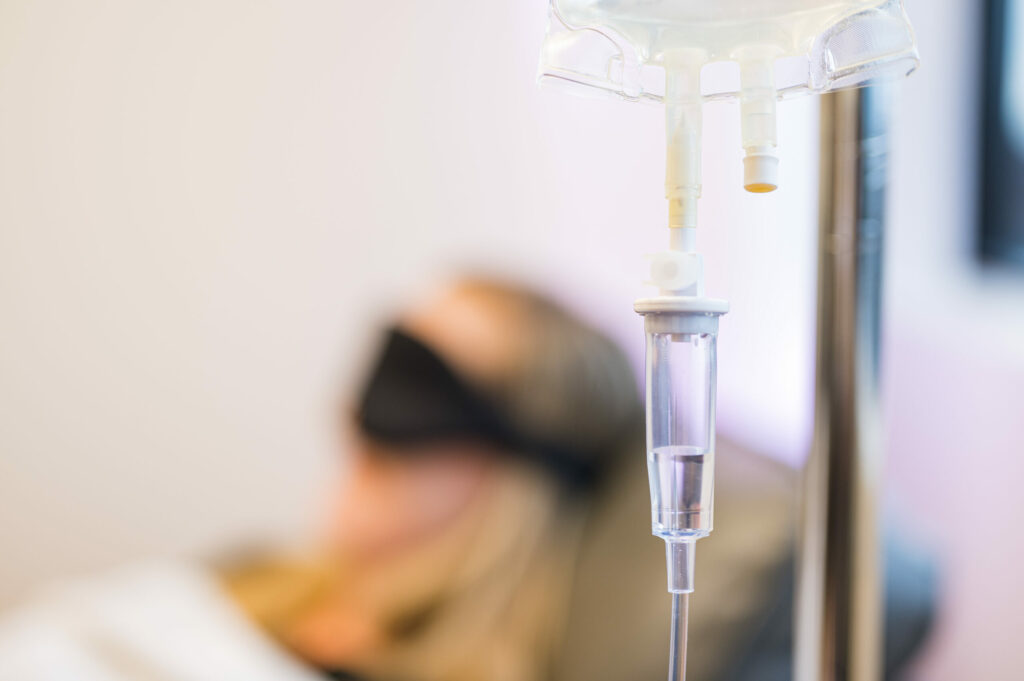
Trauma No More: How Ketamine IV Therapy is Changing the Game for PTSD Treatment
Post-Traumatic Stress Disorder (PTSD) is a mental health condition that can develop after experiencing or witnessing a traumatic event. It can affect anyone who has experienced a traumatic event, such as war, sexual assault, natural disasters, or accidents. PTSD is characterized by symptoms such as anxiety, depression, insomnia, and flashbacks. Although there are several treatments for PTSD, they are often not effective for everyone. However, there is a new treatment that is changing the game for PTSD treatment: Ketamine IV Therapy.
Ketamine is a drug that has been used as a dissociative anesthetic for several years. It is known for its sedative and analgesic properties, making it an effective anesthetic for surgical procedures. In recent years, ketamine has gained attention for its potential as a treatment for mental health conditions such as depression, anxiety, and PTSD.
Ketamine IV therapy involves the administration of ketamine via an intravenous infusion. It is a quick and efficient treatment that can provide almost immediate relief from symptoms of PTSD. Unlike traditional treatments for PTSD, such as cognitive-behavioral therapy and medication, ketamine IV therapy is non-invasive and does not require ongoing treatment sessions.

One of the benefits of ketamine IV therapy is that it works quickly. Patients can experience relief from symptoms within hours of the infusion. This is particularly beneficial for patients who are experiencing severe symptoms of PTSD and need immediate relief. Additionally, ketamine IV therapy has been found to be effective in patients who have not responded to other treatments.
Another benefit of ketamine IV therapy is that it is safe when administered by a trained medical professional. The dosage and duration of the infusion are carefully monitored to ensure that patients do not experience any adverse effects. However, it is important to note that ketamine IV therapy is not recommended for everyone with caution applied for those with a history of substance abuse.
Several studies have shown that ketamine IV therapy is an effective treatment for PTSD. In a study published in the Journal of Psychopharmacology, researchers found that ketamine IV therapy significantly reduced symptoms of PTSD in veterans. Another study published in the Journal of Clinical Psychiatry found that ketamine IV therapy improved symptoms of depression and anxiety in patients with PTSD.
Ketamine IV therapy is not a cure for PTSD by itself, but it can provide significant relief from symptoms, while helping to create the mental space for integrating and resolving long-held traumas. It is important to note that ketamine IV therapy should not be used as a first-line treatment for PTSD. Patients should first try traditional treatments such as therapy and medication before considering ketamine IV therapy.
In conclusion, ketamine IV therapy is changing the game for PTSD treatment. It is a safe and effective treatment that can provide almost immediate relief from symptoms. However, it is important to approach ketamine IV therapy with caution and only under the guidance of a trained medical professional. If you or someone you know is struggling with PTSD, talk to a healthcare professional to determine the best course of treatment.
Nashville Ketamine Therapy
Ketamine offers many patients a renewed sense of hope. If you’re struggling with chronic pain, PTSD, treatment-resistant depression, or other mood disorders, it may be able to help you, too. If you’re in the Nashville area and would like to learn more about ketamine therapy, we offer a free 30-minute consultation. Schedule a free information call with our Ketamine Enrollment Specialist today to learn more.
References:
Feder A, Parides MK, Murrough JW, et al. Efficacy of intravenous ketamine for treatment of chronic posttraumatic stress disorder: a randomized clinical trial. JAMA Psychiatry. 2014;71(6):681-8.
Krystal JH, Rosenheck RA, Cramer JA, et al. Adjunctive risperidone treatment for antidepressant-resistant symptoms of chronic military service-related PTSD: a randomized trial. JAMA. 2011;306(5):493-502.
Wilkinson ST, Ballard ED, Bloch MH, et al. The Effect of a Single Dose of Intravenous Ketamine on Suicidal Ideation: A Systematic Review and Individual Participant Data Meta-Analysis. Am J Psychiatry. 2018;175(2):150-158.
Lee, E. E., Della Selva, M. P., Liu, A., Himle, J. A., & Corcoran, C. M. (2020). A systematic review of randomized controlled trials of ketamine for treating psychiatric conditions. Journal of Psychiatric Research, 130, 110–117. https://doi.org/10.1016/j.jpsychires.2020.07.009
Disclaimer:
This blog provides general information and discussions about health and related subjects. The information and other content provided in this blog, website or in any linked materials are not intended and should not be considered, or used as a substitute for, medical advice, diagnosis or treatment. This blog does not constitute the practice of any medical, nursing or other professional health care advice, diagnosis or treatment. We cannot diagnose conditions, provide second opinions or make specific treatment recommendations through this blog or website.
If you or any other person has a medical concern, you should consult with your health care provider or seek other professional medical treatment immediately. Never disregard professional medical advice or delay in seeking it because of something that you have read on this blog, website or in any linked materials. If you are experiencing a medical emergency, please call 911 or call for emergency medical help on the nearest telephone immediately.
